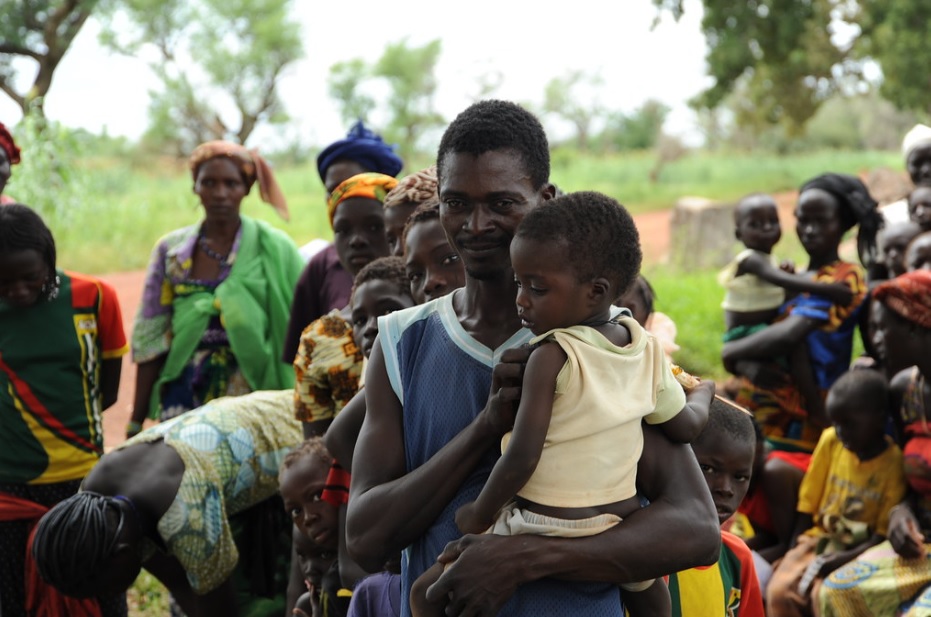UNICEF deploys emergency aid following armed attacks in Burkina Faso
In coordination with the Government of Burkina Faso, United Nations agencies and non-governmental organizations, UNICEF has provided immediate assistance including food and access to safe drinking water to vulnerable families.

Following armed attacks on the village of Solhan in the Sahel region of Burkina Faso, UNICEF has deployed emergency assistance in support of the Government and local authorities in the Sebba area, a few kilometres from the affected village. The June 5 attack by a non-state armed group resulted in the death of more than 130 civilians, including a high number of children, according to national authorities.
More than 13,000 displaced persons, including over 9,000 children, will receive 2,000 mosquito nets, 500 hygiene and dignity kits, and soap in order to prevent the spread of waterborne diseases during the rainy season and to maintain good hygiene. Additionally, 1,000 tarpaulins were distributed among the displaced population to provide shelter to families and help children pass their end-of-year exams.
In coordination with the Government of Burkina Faso, United Nations agencies and non-governmental organizations, UNICEF has provided immediate assistance including food and access to safe drinking water to vulnerable families.
"After this atrocity, it is essential to provide immediate support to the population and to meet their priority needs: hygiene, shelter, food and support for the continuity of education," said UNICEF Representative in Burkina Faso Sandra Lattouf. "Civilian populations should never be victims or targets of attacks. Families and children should be protected everywhere and at all times."
In recent months, attacks and human rights violations against civilian populations have increased. From March to May 2021, security incidents resulted in the deaths of 152 civilians. But in June alone, 178 civilians were killed, including many children.
Burkina Faso is experiencing an unprecedented humanitarian crisis. Currently, there are more than 1.2 million internally displaced people[1], 61 per cent of them are children, compared to more than 136,000 displaced people during the same period in 2019 – a tenfold increase in just three years.
More than 300,000 children are currently out of school due to the closure of 2,244[2] schools; approximately 10 per cent of the country's schools. In addition, around 800,000 people do not have access to medical care due to the closure of health centres[3].
"The children of Burkina Faso are paying a heavy price. Together with UN agencies and our partners, UNICEF is mobilizing resources to reach families and children in the most isolated areas," Lattouf said.
UNICEF and its partners have accelerated emergency assistance to the most vulnerable families. Between January and the end of April 2021, more than 150,000 people benefited from hygiene kits (buckets, soaps, canisters, cups etc.), more than 28,000 severely malnourished children were treated and more than 21,000 children were vaccinated against measles, potentially saving the country from a large-scale epidemic.
To ensure good hygiene practices and to prevent the spread of diseases, UNICEF and its partners have also undertaken the rehabilitation and construction of boreholes and the installation of solar systems benefiting more than 62,000 people in need. More than 12,500 children have received access to psychosocial support to help them process traumatic events in their lives.
"As we redouble our efforts to support the authorities in addressing this humanitarian crisis in particularly hard-hit areas, we are also supporting the Government at the national level to expand access to social protection, health and education services for children and youth throughout the country," said Sandra Lattouf.
"We must keep the promise made in the African Charter on the Rights and Welfare of the Child: to protect every child from the consequences of armed conflict, other disasters or emergencies. Together, let's redouble our efforts to protect the children of Burkina Faso," she added.
- READ MORE ON:
- UNICEF
- Burkina Faso
- Sandra Lattouf
- children










